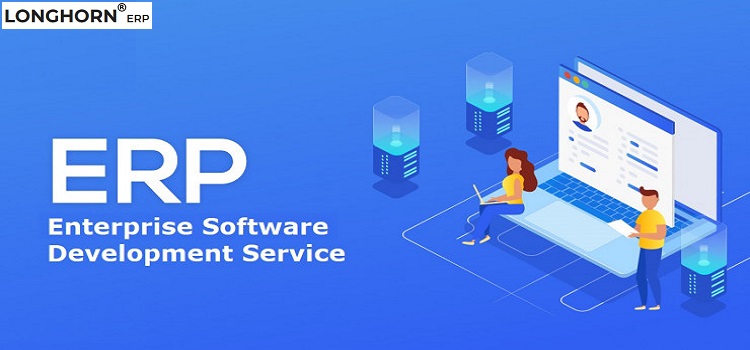In today’s rapidly evolving business landscape, organizations face numerous challenges ranging from operational inefficiencies to managing complex processes across various departments. To thrive in such a competitive environment, businesses need robust tools and strategies to streamline their operations and enhance productivity. This is where Enterprise Resource Planning (ERP) systems come into play. In this blog, we’ll explore how ERP corporate solutions can revolutionize your business operations and drive sustainable growth.
Understanding ERP Corporate Solutions
ERP corporate solutions are comprehensive software platforms designed to integrate and automate core business processes such as finance, human resources, supply chain management, manufacturing, and customer relationship management (CRM). These systems provide a centralized repository of data, allowing departments to collaborate seamlessly and make informed decisions based on real-time insights.
Key Features and Benefits
Integration: ERP solutions streamline operations by integrating disparate systems and processes into a unified platform. This eliminates data silos, reduces manual errors, and enhances data accuracy across the organization.
Automation: By automating routine tasks and workflows, ERP systems improve operational efficiency and free up employees to focus on more strategic initiatives. This leads to cost savings and faster time-to-market for products and services.
Data Analytics: ERP corporate solutions offer advanced analytics capabilities that enable organizations to gain valuable insights into their operations. From sales trends to production costs, businesses can leverage data-driven decision-making to optimize processes and drive growth.
Scalability: Whether you’re a small startup or a large enterprise, ERP systems are scalable and adaptable to your business needs. As your organization grows, you can easily add new modules and functionalities to accommodate evolving requirements.
Improved Customer Service: With a 360-degree view of customer interactions and preferences, ERP solutions help businesses deliver personalized experiences and build stronger relationships with their customers. This leads to higher customer satisfaction and loyalty.
Regulatory Compliance: ERP corporate solutions incorporate built-in compliance features to ensure adherence to industry regulations and standards. This reduces the risk of non-compliance penalties and enhances the reputation of the organization.
Implementation Best Practices
Implementing an ERP corporate solution is a significant undertaking that requires careful planning and execution. Here are some best practices to ensure a successful implementation:
Define Clear Objectives: Clearly define your business objectives and expectations from the ERP system. Identify key stakeholders and involve them in the decision-making process to gain buy-in and support.
Select the Right Vendor: Choose a reputable ERP vendor with a proven track record of success in your industry. Evaluate their technology stack, implementation methodology, and post-implementation support services before making a decision.
Customization vs. Configuration: Strike the right balance between customization and configuration to meet your business needs without compromising system stability. Avoid excessive customization that can lead to higher costs and longer implementation timelines.
Training and Change Management: Invest in comprehensive training programs to ensure that employees are proficient in using the ERP system. Implement change management strategies to address resistance and foster a culture of continuous improvement.
Data Migration and Testing: Plan meticulously for data migration from legacy systems to the ERP platform. Conduct thorough testing at each stage of the implementation process to identify and address any issues before go-live.
Post-Implementation Support: Provide ongoing support and maintenance to address user queries, resolve technical issues, and optimize system performance. Regularly update the ERP system with patches and upgrades to stay current with the latest features and security enhancements.
Case Study: XYZ Corporation
To illustrate the impact of ERP corporate solutions, let’s consider the case of XYZ Corporation, a multinational manufacturing company. XYZ Corporation implemented an ERP system to streamline its supply chain operations, improve inventory management, and enhance decision-making capabilities.
By consolidating data from multiple sources into a single platform, XYZ Corporation gained real-time visibility into its inventory levels, production schedules, and supplier performance. This enabled the company to optimize inventory levels, reduce stockouts, and minimize carrying costs.
Furthermore, the ERP system facilitated collaboration between different departments, such as procurement, production, and logistics, leading to smoother workflows and faster order fulfillment. As a result, XYZ Corporation achieved significant cost savings, increased operational efficiency, and improved customer satisfaction.
Conclusion
In conclusion, ERP corporate solutions play a crucial role in modernizing business operations and driving sustainable growth. By integrating processes, automating tasks, and providing actionable insights, ERP systems empower organizations to stay ahead of the competition and deliver exceptional value to their customers.
If you’re looking to streamline your business operations and unlock new opportunities for success, consider investing in an ERP corporate solution today. With the right strategy and implementation partner, you can transform your organization and pave the way for future growth and innovation.

